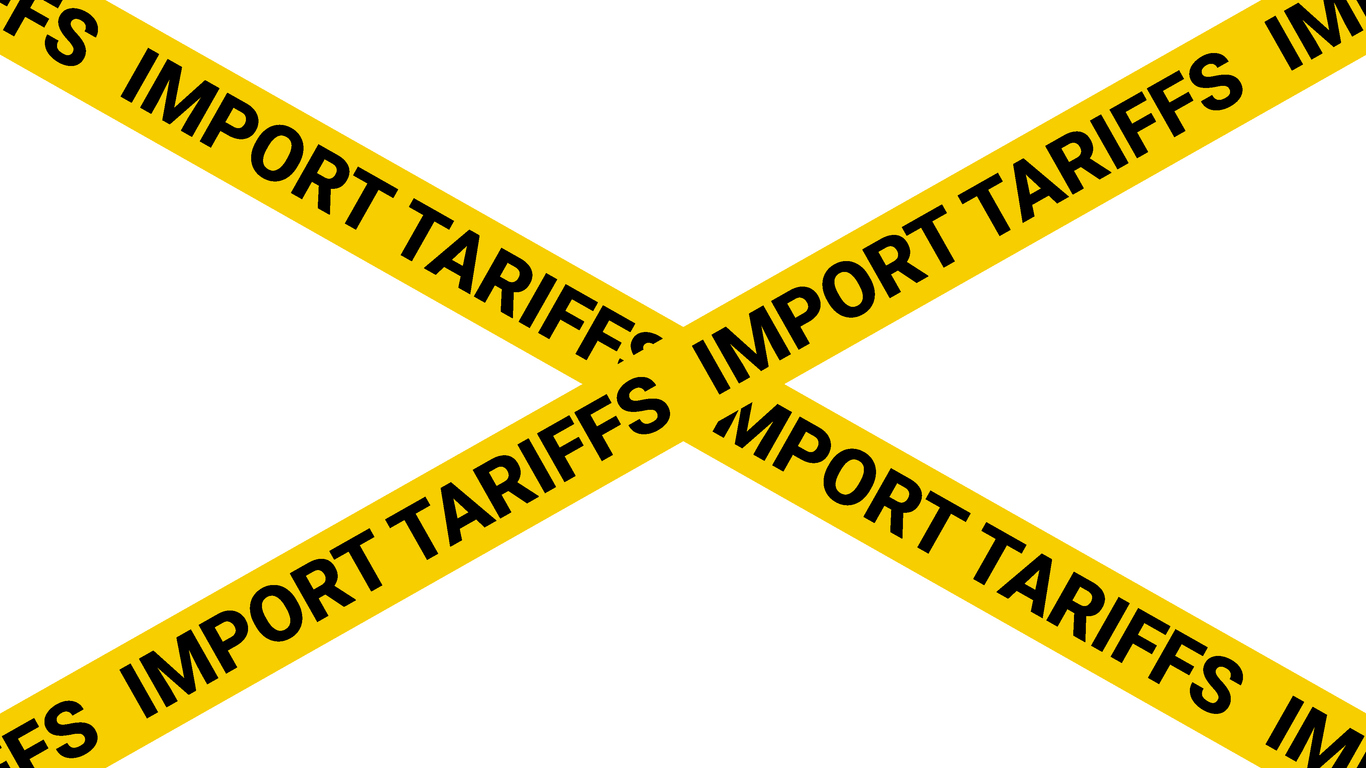Ensuring Safe Operations: Importance of Site Equipment Inspection and Performance Testing in Nigeria
Ensuring Safe Operations: Importance of Site Equipment Inspection and Performance Testing in Nigeria
Welcome to our latest blog post where we delve into the vital topic of ensuring safe operations in Nigeria. In a country bustling with energy and industry, it is crucial to prioritize site equipment inspection and performance testing. Why, you may wonder? Because at the heart of every successful operation lies the foundation of safety, reliability, and efficiency. Join us as we explore the importance of these practices in Nigeria’s dynamic landscape and discover how they can pave the way for unprecedented success while keeping everyone involved out of harm’s way. So grab your hard hat, buckle up, and let’s dive into this essential subject together!
Introduction to Site Equipment Inspection and Performance Testing
Introduction to Site Equipment Inspection and Performance Testing
Site equipment inspection and performance testing are crucial aspects of ensuring safe operations in any construction or industrial site. In Nigeria, where the demand for infrastructure development is high, it is essential to have a comprehensive understanding of these processes to ensure the safety, functionality, and longevity of equipment.
Site equipment refers to all the tools, machinery, vehicles, and other devices used in construction or industrial activities. These can range from small hand-held tools such as hammers and drills to heavy-duty cranes and excavators. The proper functioning of this equipment is vital for successful project completion and the safety of workers on-site.
The first step in ensuring safe operations is conducting regular inspections of all site equipment. This process involves a thorough visual examination of each piece of machinery or tool to identify any potential defects or malfunctions. Inspections should be carried out by trained personnel who have a good understanding of how the equipment works and what signs to look out for.
During inspections, various factors are assessed, including the condition of structural components such as frames, booms, gears, brakes, cables, hydraulic systems, etc. Any wear and tear or damage to these critical parts can significantly impact the performance and safety of the equipment.
Apart from visual inspections, performance testing is another essential aspect that needs to be carried out regularly. It involves evaluating how well an item performs its intended function under specific conditions. For instance, a crane’s lifting capacity may be tested by lifting various loads at different angles while monitoring its stability.
Performance testing also helps identify any issues with accuracy or precision within certain tolerances that may affect an operator’s ability to control the equipment safely. This type of evaluation ensures that site equipment meets industry standards and regulations set by government agencies regarding safety protocols.
Regular site equipment inspection and performance testing are critical for maintaining safe operations on construction sites in Nigeria. By identifying potential hazards early on through inspections and ensuring the proper functioning of equipment through performance testing, risks can be minimized, and accidents can be prevented. Neglecting these processes not only puts workers at risk but also leads to costly delays and repairs. It is essential for companies to prioritize site equipment inspection and performance testing to ensure the safety and success of their projects.
Importance of Site Equipment Inspection in Nigeria
Site equipment inspection is a crucial aspect of ensuring safe operations in Nigeria. With the growth and development of industries in the country, it has become imperative to maintain high standards of safety to protect workers and the public from potential hazards. In this regard, regular inspection and performance testing of site equipment play a vital role.
One of the main reasons why site equipment inspection is important in Nigeria is to comply with regulatory requirements. The Nigerian government has put in place various regulations and policies to ensure that industries adhere to safety guidelines. Failure to comply can result in heavy penalties or even shut down operations. Therefore, regular inspections are necessary to identify any potential hazards or non-compliance issues that need immediate attention.
Moreover, site equipment inspection helps prevent accidents and injuries at the workplace. Faulty or malfunctioning equipment can pose serious risks to workers’ safety, leading to injuries or even fatalities. By conducting routine inspections, potential issues can be identified early on and addressed before they escalate into more significant problems that could cause harm.
Ensuring safe operations through regular site equipment inspection also promotes productivity and efficiency on-site. When workers feel safe and secure while operating machinery or performing tasks, they are more likely to work efficiently without fear or distraction. This allows for smooth workflow processes, which ultimately leads to increased productivity.
Another critical aspect of site equipment inspection is its role in prolonging the lifespan of machinery and reducing maintenance costs. Regular inspections help identify wear-and-tear on equipment, allowing for timely repairs or replacements before major breakdowns occur. This not only saves money but also ensures that operations run smoothly without frequent interruptions due to faulty machines.
Furthermore, conducting performance testing alongside inspections provides valuable data on how well each piece of equipment is functioning. This information helps companies make informed decisions about whether repairs should be made or if it’s time for replacement based on cost-effectiveness and worker safety concerns.
It is evident that site equipment inspection plays a crucial role in ensuring safe operations in Nigeria. Not only does it comply with regulations and prevent accidents, but it also promotes productivity and efficiency while saving costs and prolonging the lifespan of machinery. Companies must prioritize regular inspections to maintain high safety standards and protect their workers’ well-being.
– Ensuring safety and compliance with regulations
When it comes to operating any type of equipment on a site, safety should always be the number one priority. This is especially true in Nigeria, where regulations and standards for construction and industrial sites are constantly evolving and being enforced. It is crucial for companies to ensure that their equipment is not only functioning properly, but also compliant with these regulations.
One of the most effective ways to ensure safety on a site is through regular equipment inspections and performance testing. These processes involve thoroughly examining each piece of machinery to identify any potential hazards or malfunctions, as well as testing its overall performance capabilities.
During an inspection, trained professionals will carefully assess various components such as electrical wiring, hydraulic systems, mechanical parts, and structural integrity. They will also check for any signs of wear and tear or damage that could compromise the functionality of the equipment. If any issues are found during the inspection process, they can be addressed immediately before they escalate into more serious problems.
Performance testing involves putting the equipment through a series of simulated tasks to evaluate its overall efficiency and reliability. This includes testing its capabilities under different load levels and environmental conditions to ensure it can handle various scenarios without malfunctioning. The results from these tests provide valuable insights into whether the equipment is meeting industry standards and performing at optimal levels.
In addition to ensuring safety on a site, inspections and performance testing also play a critical role in compliance with regulations. In Nigeria, there are specific laws that mandate regular maintenance checks on all types of equipment used in construction or industrial settings. Failure to comply with these regulations can result in costly fines or even legal action against the company responsible.
By conducting frequent inspections and performance tests on their equipment, companies not only demonstrate their commitment towards ensuring safe operations but also avoid potential penalties for non-compliance with regulations.
Prioritizing regular inspections and performance testing helps guarantee safe operations on a site while simultaneously ensuring compliance with ever-changing regulations in Nigeria. Companies must recognize the importance of these processes and make them an integral part of their maintenance routines to protect not only their workers but also their reputation and business.
– Minimizing equipment downtime and costs
In the dynamic world of construction and industrial operations in Nigeria, equipment downtime can significantly impact productivity and profitability. Every minute of equipment failure translates to lost time, revenue, and potential risks to worker safety. This is why minimizing equipment downtime and costs should be a top priority for any organization operating in these industries.
One crucial step towards achieving this goal is by implementing regular site equipment inspection and performance testing. These processes not only ensure safe operations but also play a significant role in preventing unexpected breakdowns and reducing maintenance costs.
Site equipment inspection involves a thorough visual examination of all machinery, tools, and devices used on-site. It is typically carried out by trained personnel who are familiar with the specific types of equipment being used. During an inspection, potential hazards or defects are identified, recorded, and reported for immediate corrective action.
On the other hand, performance testing evaluates how well the equipment is functioning under normal operating conditions. This process often involves running tests on various components such as engines, hydraulics systems, brakes, electrical systems, etc., to determine their efficiency and identify any potential issues that may affect their performance.
By conducting regular inspections and performance tests on site equipment, organizations can identify potential problems early on before they escalate into more significant issues that result in costly downtime. It also allows for proactive maintenance schedules to be put in place to prevent sudden breakdowns during critical operations.
Moreover, regularly inspecting and testing site equipment can significantly reduce workplace accidents caused by faulty machinery or tools. According to a report published by the International Labour Organization (ILO), around 2 million work-related deaths occur globally each year due to occupational accidents or diseases caused by hazardous substances or unsafe practices.
Implementing proper inspection protocols ensures that all safety standards are met before using any piece of machinery or tool on-site. This not only reduces the risk of accidents but also promotes a safe working environment for employees.
Minimizing equipment downtime through regular inspections and performance testing is crucial for safe and efficient operations in Nigeria. It not only helps to prevent unexpected breakdowns but also promotes a culture of safety in the workplace. By investing time and resources into these processes, organizations can ensure smooth operations, reduce costs, and most importantly, keep their employees safe.
– Increasing productivity and efficiency
Increasing productivity and efficiency is crucial for any construction project in Nigeria. With strict deadlines and budget constraints, it is important for companies to ensure that their site equipment is operating at its optimal level. This can be achieved through regular inspection and performance testing.
One of the main benefits of inspecting and testing site equipment is the prevention of breakdowns. Equipment failures can result in costly delays and setbacks, impacting both the timeline and budget of a project. By conducting regular inspections, potential issues can be identified early on and addressed before they become major problems. This not only saves time but also reduces the risk of accidents or injuries caused by faulty equipment.
Moreover, performance testing allows companies to assess the capabilities of their equipment and make necessary adjustments to improve productivity. By understanding the capabilities of each piece of equipment, managers can allocate tasks accordingly and maximize their usage. This results in better utilization of resources, ultimately leading to increased efficiency.
Regular inspections also help identify any worn out or damaged parts that need replacement. Replacing these parts in a timely manner ensures that the equipment continues to function smoothly without any unexpected breakdowns or malfunctions. This reduces downtime and increases overall productivity on a construction site.
In addition, thorough inspections can reveal any potential safety hazards associated with using certain equipment. It is important to ensure that all safety features are functioning properly as per industry standards before using machinery on-site. This helps prevent accidents or injuries to workers which could otherwise result in legal consequences for the company.
Furthermore, conducting regular inspections and performance tests allows companies to monitor fuel consumption rates for their equipment. By identifying any inefficiencies or abnormalities in fuel usage, adjustments can be made to reduce costs and increase profitability.
Another benefit of regular inspections is maintaining compliance with regulations set by relevant authorities in Nigeria regarding site safety standards. Failure to comply with these regulations could result in fines or even suspension of operations, causing significant setbacks for a project.
Increasing productivity and efficiency is essential for the success of any construction project in Nigeria. Regular inspections and performance testing of site equipment not only prevent breakdowns and delays but also improve safety, reduce costs, and ensure compliance with regulations. Therefore, it is crucial for companies to prioritize these measures to ensure their operations run smoothly and successfully.
The role of Wigmore Trading in site equipment inspection and performance testing in Nigeria
The role of Wigmore Trading, a leading provider of industrial equipment and services in Nigeria, is crucial in ensuring safe operations through site equipment inspection and performance testing. With over 20 years of experience in the industry, Wigmore Trading has established itself as a reliable partner for companies looking to maintain high safety standards and operational efficiency.
One of the key roles played by Wigmore Trading is conducting thorough site equipment inspections. This involves a comprehensive review of all the equipment used on-site to identify any potential hazards or issues that may affect its performance. The company’s team of experts conducts visual inspections, checks for proper functioning, and reviews maintenance records to ensure that all equipment is up-to-date with necessary repairs and servicing.
In addition to regular inspections, Wigmore Trading also offers performance testing services. This involves subjecting the equipment to simulated operational conditions to assess its ability to perform under different scenarios. These tests are essential in identifying any weaknesses or malfunctions that may compromise the safety and effectiveness of the machinery.
Wigmore Trading goes beyond just identifying potential problems; they also provide solutions to address them. The company offers maintenance services such as lubrication, calibration, and replacements for worn-out parts. They also have an extensive inventory of spare parts available for immediate replacement if needed.
Moreover, Wigmore Trading provides training programs for operators on how to properly use and maintain their equipment safely. By educating workers on best practices for handling machinery, they help prevent accidents caused by human error.
Another crucial role played by Wigmore Trading is providing certification services for site equipment. In accordance with Nigerian regulations and international standards, all industrial machinery must undergo periodic certification to ensure their safety and compliance with operating guidelines. As an authorized body by relevant authorities in Nigeria, Wigmore Trading conducts these certifications efficiently while adhering strictly to industry standards.
Furthermore, during times of emergencies or breakdowns at construction sites or industrial plants, Wigmore Trading offers prompt repair services. Their team of experienced technicians is available 24/7 to respond to any equipment malfunctions, minimizing downtime and ensuring the safety of workers.
Wigmore Trading plays a vital role in maintaining safe operations at construction sites and industrial plants through their site equipment inspection and performance testing services. With their expertise, efficiency, and commitment to upholding safety standards, they are an essential partner for companies looking to ensure the well-being of their workers and the successful completion of projects.
– Experience and expertise in the industry
Experience and expertise in the industry play a crucial role in ensuring safe operations on construction sites in Nigeria. With the country’s rapid growth and development, there has been an increasing demand for buildings and infrastructure, leading to a rise in construction activities. However, this also means that there is a higher risk of accidents and incidents occurring due to inadequate equipment inspection and performance testing.
Having experience in the industry means having knowledge about the potential hazards that may arise during construction projects. This includes identifying safety risks associated with different types of equipment such as cranes, scaffolding, excavators, and more. Additionally, experienced personnel are familiar with safety regulations and standards set by government bodies like the Nigerian Institute of Building (NIOB) to ensure compliance.
Expertise comes into play when conducting site inspections and performance testing of equipment. It requires specialized skills and training to assess whether the equipment is functioning correctly or not. Expert inspectors can detect subtle flaws or defects that could lead to catastrophic failures if left unaddressed.
Moreover, having experience and expertise allows for efficient planning of equipment maintenance schedules. Regular inspections help identify any wear-and-tear or damage that may occur over time due to prolonged use. These issues can then be addressed promptly before they escalate into more significant problems that could disrupt operations or put workers’ lives at risk.
The importance of experience is especially evident during complex construction projects involving heavy machinery or specialized equipment. Experienced operators have a better understanding of how these machines work, their limitations, and how best to utilize them safely on-site.
Another aspect where experience plays a vital role is in training workers on using site equipment safely. Experienced supervisors can provide practical guidance on safe operating procedures for different types of machinery based on their previous experiences.
Having experienced personnel with expertise in carrying out site inspections and performance testing is essential for promoting safe operations on construction sites in Nigeria. Their knowledge helps minimize risks posed by faulty or poorly maintained equipment, ensuring that construction projects are completed without any accidents or incidents. As the country continues to witness rapid growth and development, it is crucial to prioritize safety measures to protect workers and the public while also maintaining high-quality infrastructure.
– Services offered for various types of equipment
In order to ensure safe operations and maintain the highest level of performance on construction sites in Nigeria, it is crucial to conduct regular equipment inspections and performance testing. This not only ensures the safety of workers but also increases the overall efficiency and productivity of the site. With a wide range of equipment being used on construction sites, it is important to understand the different services offered for various types of equipment.
1. Heavy Equipment Inspection:
Heavy equipment such as excavators, bulldozers, cranes, and dump trucks are crucial for any construction project. These machines are subjected to heavy loads and intense working conditions which can lead to wear and tear over time. Regular inspection by trained professionals helps identify any potential issues before they become major problems. This includes checking for structural integrity, wear on moving parts, hydraulic systems, electrical systems, and other critical components.
2. Lifting Equipment Inspection:
Lifting equipment such as forklifts, hoists, and cranes play a significant role in material handling on construction sites. These machines are responsible for lifting heavy materials or equipment to heights that would otherwise be impossible manually. As a result, they require regular inspections to ensure their proper functioning and safety compliance.
3. Electrical Equipment Inspection:
Electrical equipment such as generators, power tools, welding machines are essential on construction sites but can also pose significant hazards if not maintained properly. Regular inspection of these devices helps identify any faulty wiring or damaged components that could cause electrical shocks or fires.
4. Scaffolding Inspection:
Scaffolding is a temporary structure used to support workers during construction activities at elevated heights. Due to their temporary nature and constant use by multiple workers throughout the day, scaffolds must be inspected regularly to ensure they meet safety standards set by regulatory bodies.
5. Testing Services:
Apart from inspections, there are various testing services available for different types of equipment as well. Performance testing involves conducting load tests on lifting machinery or structural integrity tests on scaffolding to ensure they can handle their intended tasks safely. Non-destructive testing methods such as ultrasound and radiography can also be used to detect any hidden defects in equipment.
Regular inspection and performance testing of site equipment are vital for the safety and efficiency of construction sites in Nigeria. It is crucial to hire trained professionals to conduct these services and adhere to all safety regulations set by governing bodies. By prioritizing equipment inspections and testing, we can ensure safe operations and prevent potential accidents or delays on construction sites.
– Customer testimonials and success stories
Customer testimonials and success stories are powerful tools in showcasing the importance of site equipment inspection and performance testing in Nigeria. These real-life experiences from satisfied clients highlight the positive impact that these practices have had on their operations, providing valuable insights for others in the industry.
One such success story comes from a construction company in Lagos, who implemented regular site equipment inspections and performance testing as part of their safety protocols. Before this, they had experienced frequent breakdowns and delays due to faulty equipment. However, with the implementation of these practices, they were able to identify potential issues before they turned into major problems. This not only saved them time and money but also ensured the safety of their workers.
Another client from Port Harcourt shared how performance testing helped them identify a critical flaw in their heavy machinery. They had been using it for months without any issues until it unexpectedly malfunctioned during a crucial project. Upon further investigation through performance testing, it was revealed that there was a problem with one of its components that could have potentially caused serious accidents on-site if left undetected.
These testimonials demonstrate the vital role that site equipment inspection and performance testing play in preventing accidents and ensuring safe operations. Not only do these practices protect workers from harm, but they also safeguard companies from costly repairs or replacements due to unexpected failures.
Moreover, successful completion of projects is another significant factor impacted by proper equipment inspection and testing. A satisfied customer from Abuja shared how timely identification of an issue through inspection prevented downtime on their project. This allowed them to meet their deadlines without any hiccups or delays, leading to repeat business for the company performing the inspections.
In addition to these individual success stories, there are overall industry benefits as well. A government report released last year highlighted how implementing regular equipment inspections has led to a decrease in workplace accidents across various industries in Nigeria. This shows that not only do these practices benefit individual businesses but also contribute towards creating a safer working environment for all.
Customer testimonials and success stories validate the importance of site equipment inspection and performance testing in Nigeria. They serve as a reminder that neglecting these practices can have serious consequences, both in terms of safety and business operations. By prioritizing regular inspections and testing, companies can ensure safe and successful operations while also building a positive reputation among their clients.
Commonly inspected equipment and testing methods used
Commonly inspected equipment and testing methods used in Nigeria vary depending on the type of industry and site operations. However, there are some common pieces of equipment that are routinely inspected and tested to ensure safe operations.
1. Cranes: Cranes are commonly used in construction sites, ports, and other industrial settings in Nigeria. These machines have to undergo regular inspections to check for any structural damage or wear and tear on critical components such as cables, hooks, brakes, and hoisting systems. The most commonly used testing method for cranes is load testing, where the crane’s maximum lifting capacity is determined by lifting a predetermined weight.
2. Forklifts: Forklifts are widely used in warehouses, factories, and construction sites across Nigeria. To maintain safe operations, these vehicles must be regularly inspected for any mechanical issues with their braking systems, steering mechanism, tires, and forks. Load tests are also conducted on forklifts to ensure they can safely handle the maximum load they were designed for.
3. Electrical Equipment: In industrial settings where electricity is a crucial component of daily operations, regular inspections of electrical equipment like generators, transformers,and switchgears are necessary to prevent accidents such as electric shocks or fires. These inspections involve checking for loose connections or damaged wires as well as conducting insulation resistance tests.
4. Pressure Vessels: Pressure vessels such as boilers and tanks are commonly found in industries such as oil refineries and chemical plants in Nigeria.To prevent catastrophic failures that can result from high-pressure explosions or leaks; these vessels must undergo thorough inspections at least once a year.Inspectors look out for any signs of corrosion or cracks that could compromise the vessel’s integrity.Additionally; non-destructive testing methods like ultrasonic testing may be used to detect internal defects that cannot be seen with the naked eye.
5.Cranes
6.Forklifts
Apart from these specific types of equipment; general safety inspections are also carried out to identify any hazards or potential risks in the workplace. These include checking for proper signage, fire extinguishers, emergency exits, and first aid kits.
Regular inspections and performance testing of equipment is crucial for safe operations in Nigeria. It not only ensures the safety of workers but also helps prevent costly downtime due to equipment failures. Companies must prioritize these practices to maintain a safe working environment and comply with local regulations.








Comments are closed.